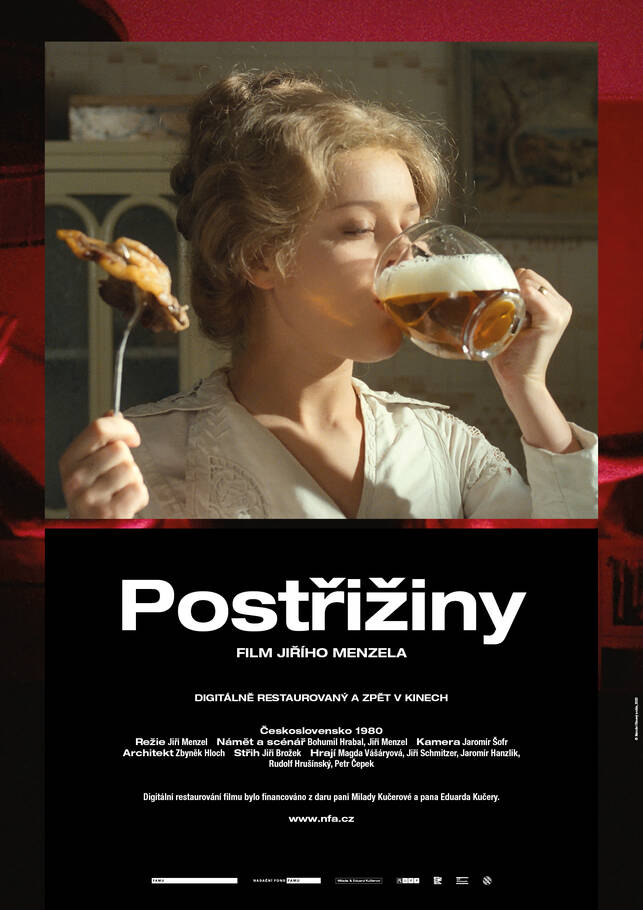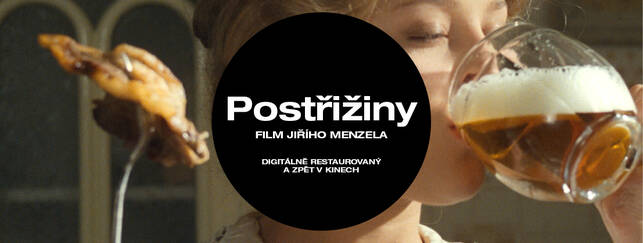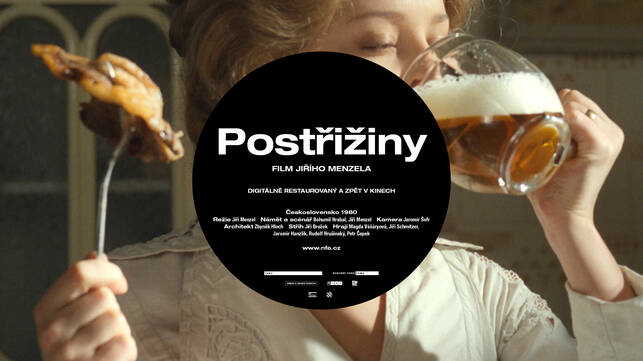Summary
In 1980, the director Jiří Menzel made another of his periodic returns to the peculiar world of Bohumil Hrabal. He had previously adapted works of the writer for the shooting of Smrt pana Baltazara (The Death of Mr Baltazar, 1965) – a short film segment of the anthology motion picture Perličky na dně (Pearls at the Bottom) – and the Oscar-winning Ostře sledované vlaky (Closely Watched Trains, 1966). However, his adaptation of Skřivánci na niti (Skylarks on the String, 1969) was not screened until 1990 for political reasons. For the screenplay of the 1961 novel Postřižiny, Menzel had the collaboration of its author. The film is a nostalgic look at small-town life in the idyllic times of the First Czechoslovak Republic, driven by autobiographical insights and observations. The playful story concerns the beautiful Maryška and her young husband, brewery manager Francin, a character inspired by Hrabal´s stepfather. Maryška is a fragile blonde who is in love with beer, meat and also her meticulous husband who she torments with her mischievous sense of fun. Dutiful Francin is obsessed by his job but his position at work is far from secure. Members of the board of trustees disapprove of the inconsistency with which he treats his beloved spouse. When Francin´s noisy and incurably hare-brained brother Pepin comes to stay, it is Maryška who encourages his wacky poetic performances. All would be well if only Francin would assert some authority over his spouse. The story’s happy ending is further underlined by the revelation that its author (little Bohumil) is being conceived... By his ninth feature, Menzel had proved himself to be a faithful and resonant interpreter of Hrabal´s prose. His ideal domain is the tragicomic miniature, while he is able to employ a playful hyperbole to soften the rougher edges of Hrabal’s original dialogue and descriptions. Postřižiny also owes its abundant warmth to one of the director´s favourite collaborators, cameraman Jaromír Šofr. Variations of light, shade and pastel colour create a harmonious backdrop for the winsome atmosphere of nostalgia, while the vividly drawn characters are given every opportunity to come through. Magda Vášáryová (Maryška), Jiří Schmitzer (Francin) and Jaromír Hanzlík (Pepin) all warm to their roles.
Read more















